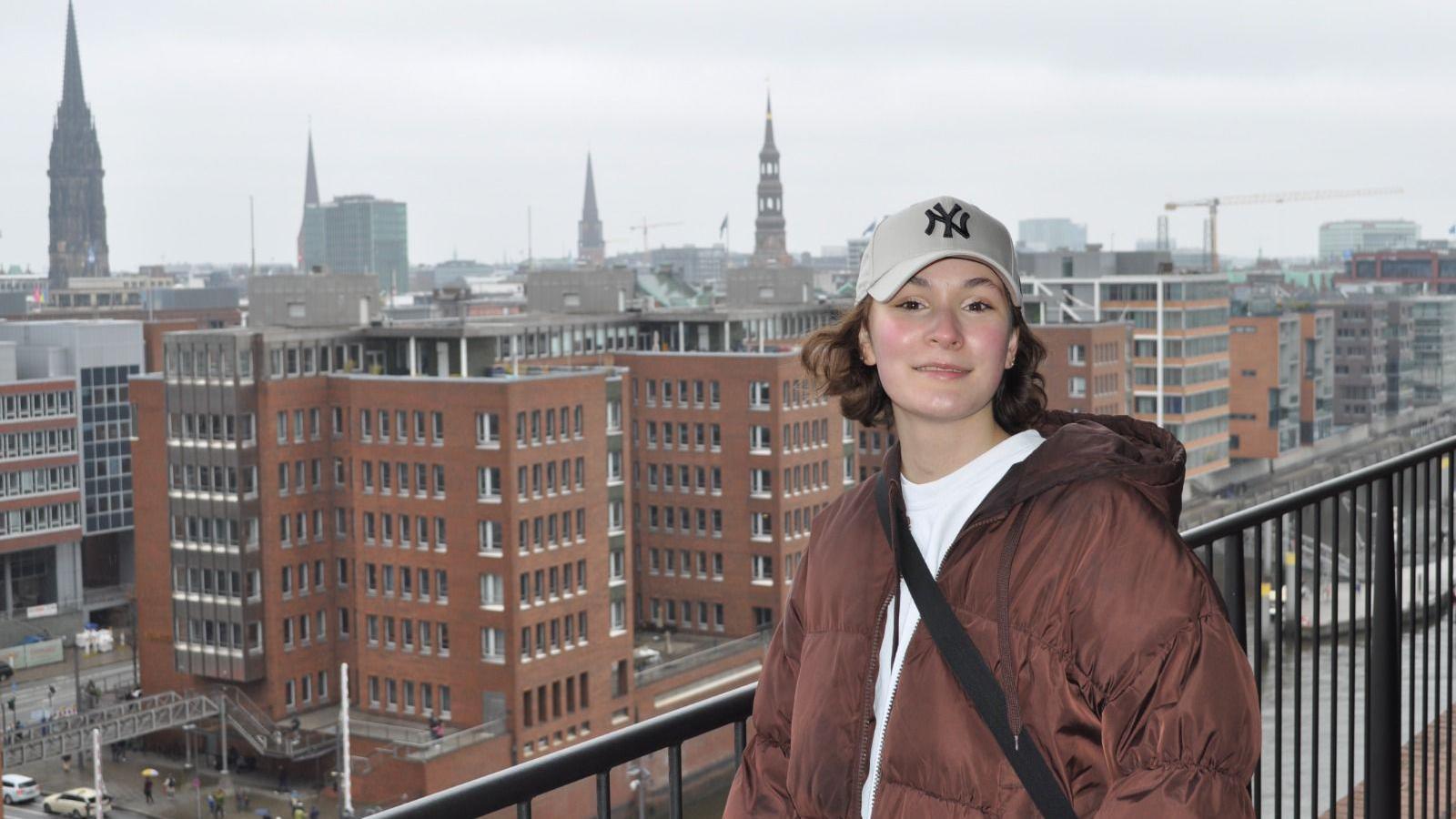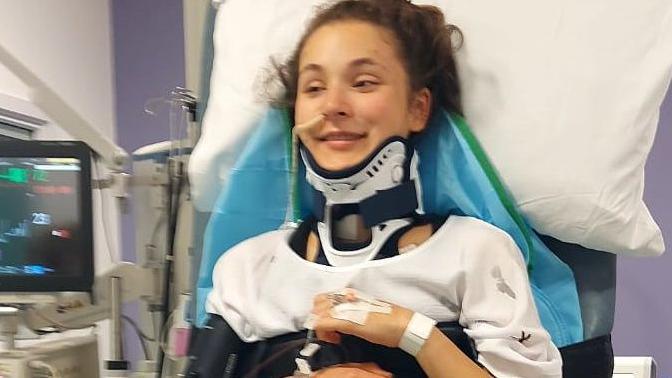Paralysed teen eyes marathon after Bristol surgery

A training accident left trampoline gymnast Paulina Gores with injuries to her spine
- Published
A teenage athlete who was left unable to move her limbs is now training for a half-marathon after receiving life-changing emergency surgery in Bristol.
Trampoline gymnast Paulina Gores, 16, was visiting Somerset from Germany in July last year when a freak accident at training left her with a fractured spine and injuries to her spinal cord.
Initially unable to move her arms and legs, Paulina received emergency treatment at Bristol Royal Hospital for Children.
One year on, she is able to run 10km (6.2 miles) and says she plans to run a half-marathon next.
"I am grateful for all the support I have received in Bristol and in Germany," she said.

Many people who get a fracture dislocation like Paulina's are left with lifelong disability
Paulina, then 15, had been attending a training camp in Somerset when she attempted a double forward somersault and landed on her head.
She was taken by air ambulance to Bristol Royal Hospital for Children where consultant paediatric neurosurgeon Mike Carter and paediatric neurosurgery fellow Dr Mallory Dacus performed surgery to secure her damaged vertebrae.
The surgery was successful, but it was not known how much function Paulina would be able to recover.
But the following day she was already starting to get some sensation in her left arm and just days later gained feeling and movement in her left leg.
Extensive physiotherapy
By the time Paulina was well enough to return to Germany following a week and a half of treatment, she had regained some feeling and movement on both sides of her body.
She then had further treatment at a hospital closer to home and spent time recovering in two rehabilitation centres.
While many people with her injury, known as a fracture dislocation, are left with permanent damage and lifelong disability, Paulina was taking her first steps just two months after the accident.
After extensive physiotherapy she was able to return to her home near Bochum in north-west Germany, where she lives with her father, and has recently returned to running.
"I was able to take steps, walk up and down stairs and even run a little bit while in the rehab centre," Paulina said.
"I had set myself the goal of running a half marathon last year, as I have always been a runner, and that is still a goal for me despite everything I’ve been through.”
Paulina has set her sights on running a half marathon after being able to master a 10K
Mr Carter said Paulina had "quite literally" come on leaps and bounds.
“Paulina’s case shows just how important it is that all parts of a trauma service work well together. In this case she was stabilised, transferred, imaged, and operated on all within a matter of hours from the injury," he said.
“Also, it shows the importance of getting under way with your rehabilitation as soon as possible. Paulina’s calm attitude and stoicism, even when she was first brought to Bristol Royal Hospital for Children, has been so impressive. She’s pretty tough.”
Follow BBC Bristol on Facebook, external, X, external and Instagram, external. Send your story ideas to us on email or via WhatsApp on 0800 313 4630.
Get in touch
Tell us which stories we should cover in Bristol